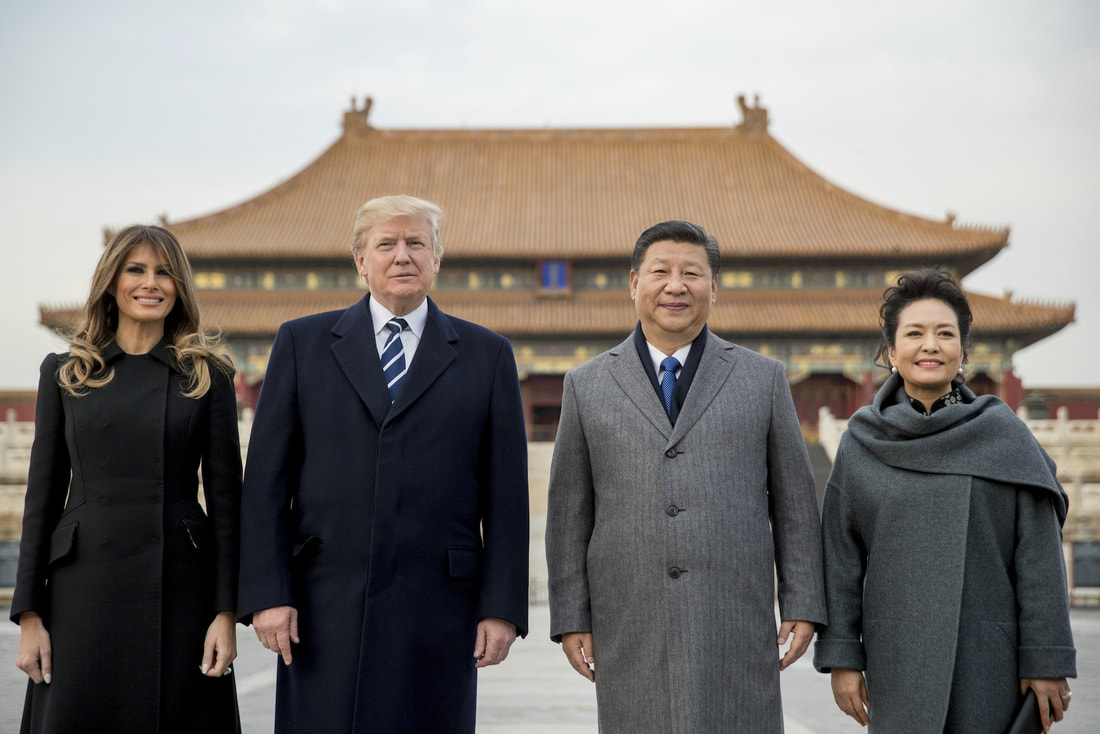|
The U.S. outlets we analyzed suggest that what Trump said during his speech in China was problematic, without saying what the problem was in a clear, data-based way. Let’s examine some of the assumptions in the coverage. Assumption 1: Trump should have publicly criticized Xi
Example A: “Trump declines to hit President Xi Jinping on trade” or Trump was “refusing to criticize” Xi on trade. (The Washington Post) Example B: “Far from attacking Mr. Xi on trade, Mr. Trump saluted him…” (The New York Times)To say Trump “refused” or “decline[d]” to criticize Xi on trade assumes he should have or was expected to. So, why should he have? And who was expecting this? During the campaign, Trump said China was “killing” and “raping” the U.S. on trade and China was responsible for “the greatest theft in the history.” He said he’d “turn it around,” and that he’d support a 45 percent tariff on goods coming from China. But the fact that he was critical of the trade deficit with China in the past doesn’t necessarily mean he should have publicly criticized Xi about it on this trip. Which leads to the next assumption… Assumption 2: Trump is being hypocritical by previously criticizing and not doing so now Example A: “Trump has often portrayed China as a rapacious competitor on the world stage, but … a different rivalry seemed to emerge over which leader [Trump of Xi] could out-flatter the other.” (Politico) Example B: “Trump’s conciliatory words on trade were particularly striking, given his protectionist threats during the 2016 presidential campaign.” (The New York Times)Trump used more positive language this week than during his campaign (he said on Thursday that the leaders had “great chemistry,” when during the campaign he had said China was “raping” the U.S.). Is that hypocritical? It’s not uncommon for politicians to speak in more respectful language on a diplomatic trip than during a campaign. The media could just present what Trump said then and now, without opinion or implication. Assumption 3: Trump is intentionally trying to flatter Xi to get what he wants, but it won’t work Example A: Trump “bets on flattery” and “doubl[ed] down on his gamble” (The New York Times) Example B: “But some of Trump’s allies are deeply skeptical of that approach [of ‘flattery’], worrying that Xi could take advantage of the president’s kindness.” (Politico)Trump may have intentionally been trying to “flatter” Xi to get what he wanted, or he may just be speaking respectfully. Assuming the former, why is it a problem? Would Trump more effectively address the trade deficit by criticizing Xi? We don’t know how Trump’s visit will end up affecting the deficit in the long run. Written by Leah Mottishaw and Julia Berry López Edited by Julia Berry López, Jens Erik Gould and Rosa Laura Junco Visit the original story on Knife Media’s website Follow us on Twitter @theknifemedia Follow us on LinkedIn Comments are closed.
|
Jens Erik GouldJens is a political, business and entertainment writer and editor who has reported from a dozen countries for media outlets including The New York Times, National Public Radio and Bloomberg News Archives
February 2018
Categories
All
|

 RSS Feed
RSS Feed